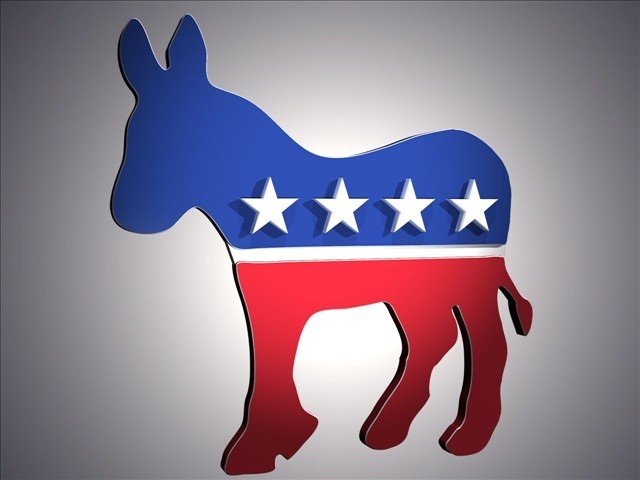Now the White House political office, shuttered by Obama three years ago, is back and in full swing. The six-person team set up shop last month, ahead of midterm elections in November in which Democratic losses could render Obama's final years in office an exercise in futility.
Working out of the same building that houses Vice President Joe Biden's staff, the office provides real-time, constant communication between the White House and the myriad political groups working to elect Democrats this year.
One White House official described the office as an "early warning system" in a year when Republicans will spend a fortune trying to use Obama's political weaknesses against his fellow Democrats.
Democrats are anxiously protecting their fragile Senate majority and hope to gain House seats, while Obama is pushing legislative proposals that have hit roadblocks despite his insistence that they enjoy broad political support.
As Obama's re-election campaign was ramping up in 2011, Obama closed the office and shifted his political operation to Chicago. Since the campaign ended, a handful of top White House aides have picked up responsibility for dealing with political matters on an ad hoc basis. But until recently, there was no single point of contact.
Led by top adviser David Simas, the resurrected office now serves as the clearinghouse for a torrent of election-year requests, data and advice flowing in and out of the West Wing. The office will also advise Obama on how he can be most helpful to Democrats, screening appeals for fundraisers and campaign visits and coordinating his endorsements.
In 2012, Obama's place at the top of the ballot helped attract Democratic voters to the polls, giving an indirect but critical boost to candidates in other races. While he's still his party's top fundraiser, polling suggests that Obama is now more of a liability than an asset in many of the moderate or conservative-leaning areas where Democrats face their toughest races. Many Democrats have already said in no uncertain terms they'd prefer Obama stay away.
As Obama advances a second-term agenda that includes unprecedented emissions rules for power plants, implementation of his unpopular health care law and a controversial pipeline decision, it's inevitable that some of his actions will pose problems for Democrats. Some already have - in the form of tens of millions of dollars in television ads attacking Democrats who have supported Obama's agenda.
That's a small fraction of what Republicans will spend this year seeking to exploit Obama's political vulnerabilities in the midterms. But by ensuring Democrats aren't caught off guard, the White House believes it can help mitigate the damage.
And where Obama can help, he will. Obama has committed to more than 18 fundraisers for Democratic committees and outside groups this year, with more expected. His re-election campaign has handed over its coveted voter file to the Democratic National Committee.
Democrats are also seeking to coalesce behind a unified economic message about middle-class opportunity that the White House hopes will resonate even in states where voters are likely to oppose Obama's call, for example, to repeal the oil and gas industry's tax breaks.
Even before the political office formally reopened, Simas, senior adviser Dan Pfeiffer and new legislative affairs chief Katie Fallon met regularly with the Senate Democratic leadership and the Democratic Senatorial Campaign Committee to discuss campaign considerations, the White House official said. The official wasn't authorized to discuss the political office by name and spoke only on condition of anonymity.
Rep. Steve Israel, D-N.Y., who chairs the parallel committee to elect House Democrats, said he and Simas email back and forth constantly.
"He'll call me and say, `How can we help?' I'll call him and say, `Can you help in certain areas?'" Israel said. "There's an ongoing and robust conversation back and forth on our districts, our incumbents, their needs and how the White House can be helpful."
Administrations of both parties have maintained political affairs shops, and the White House said the office's primary function is to advise Obama about the political climate, not to help Democrats. Still, the notion of taxpayer dollars being used for partisan purposes rubs some the wrong way.
"I see it as a White House office to elect Democrats," House Oversight Committee Chairman Darrell Issa, R-Calif., said in an interview. "The president campaigned against this activity, shut down this activity, claimed not to be doing political work in the White House. Now when he sets it back up, at a minimum it's the height of hypocrisy."
But Sara Fagen, who ran President George W. Bush's political office, said maintaining proper boundaries is relatively straightforward.
By law, White House employees can't raise money or advocate for candidates, but the president and vice president can. Logistically, someone on the staff has to coordinate the travel and timing for the president's duties as the head of his or her party. Out of an abundance of caution, Bush's political team always used separate phones and emails when working on any political activity, Fagen said.
Simas, who got his start as a gubernatorial aide and city councilman in Massachusetts, was Obama's 2012 polling and opinion research guru. The mild-mannered operative then turned his attention to health care, crunching the numbers for how Obama could get enough people to enroll to make new insurance exchanges work.
Jim Margolis, who ran Obama's advertising effort in 2012, said Simas spent thousands of hours poring over research and analytics. He said Simas would take an hour to run home for dinner with his two daughters, then would be back at the campaign's Chicago headquarters, shooting off emails into the wee hours with results from the most recent focus groups.
"If you underestimate his toughness because he's such a good guy, you are making a mistake," said Margolis. "He has a capacity to really understand the vulnerabilities of the other side. You do not want him to be looking for your soft spots."

http://accesswdun.com/article/2014/2/271486
